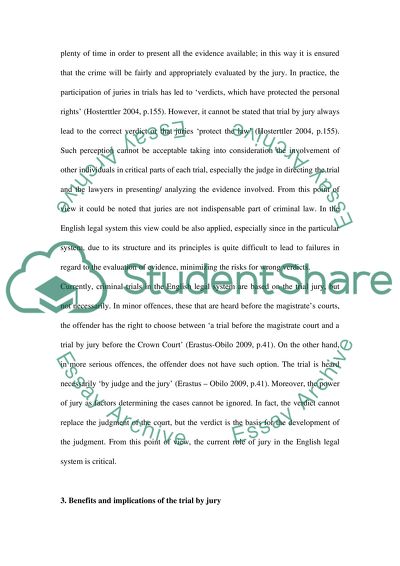Cite this document
(“Trial by jury has no place in modern Britain Essay”, n.d.)
Trial by jury has no place in modern Britain Essay. Retrieved from https://studentshare.org/law/1436016-trial-by-jury-has-no-place-in-modern-britain
Trial by jury has no place in modern Britain Essay. Retrieved from https://studentshare.org/law/1436016-trial-by-jury-has-no-place-in-modern-britain
(Trial by Jury Has No Place in Modern Britain Essay)
Trial by Jury Has No Place in Modern Britain Essay. https://studentshare.org/law/1436016-trial-by-jury-has-no-place-in-modern-britain.
Trial by Jury Has No Place in Modern Britain Essay. https://studentshare.org/law/1436016-trial-by-jury-has-no-place-in-modern-britain.
“Trial by Jury Has No Place in Modern Britain Essay”, n.d. https://studentshare.org/law/1436016-trial-by-jury-has-no-place-in-modern-britain.


